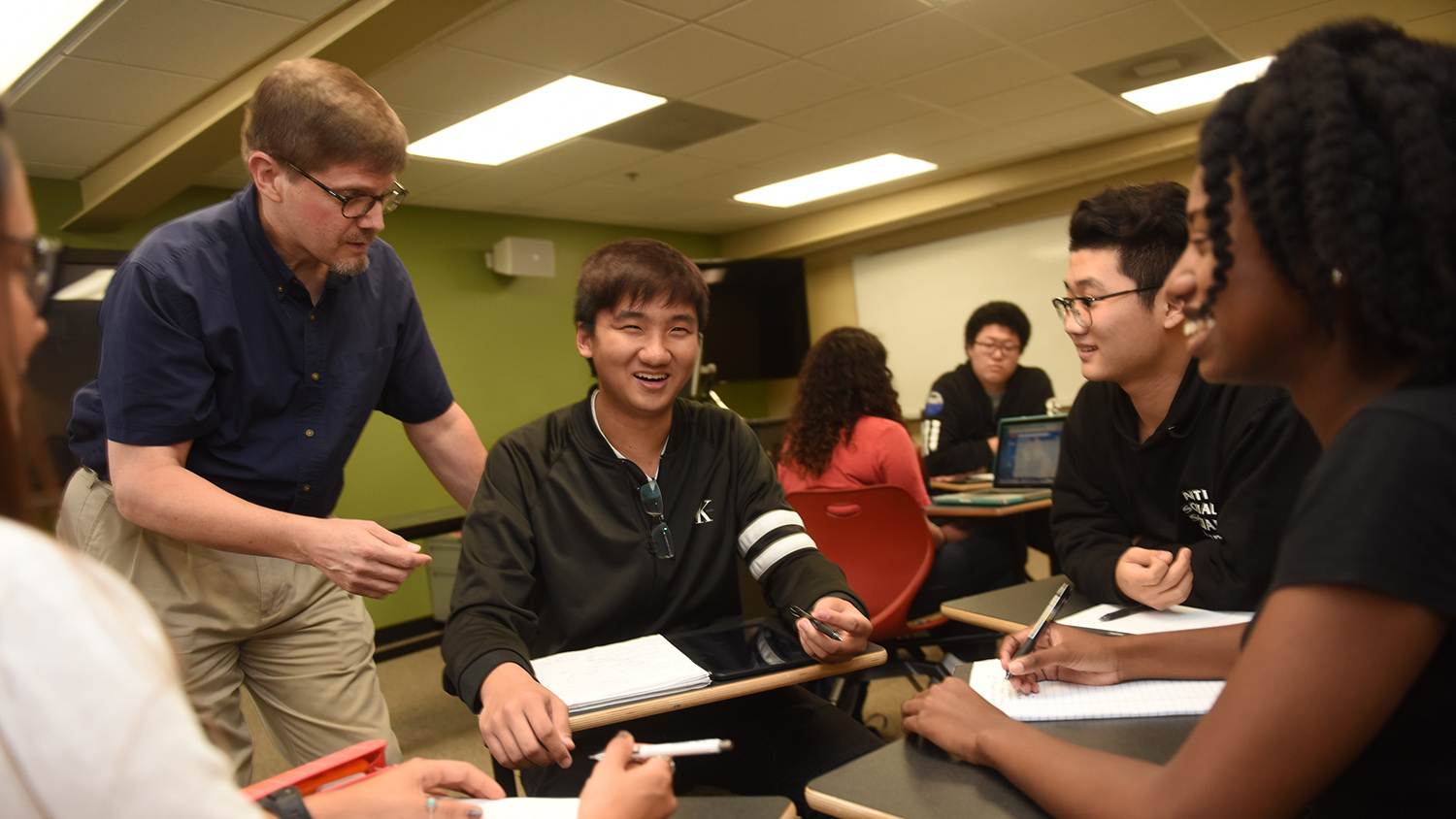Pack Hacks for Faculty: Teaching International Students

Welcome back to Pack Hacks for Faculty. Each month, a member of the NC State faculty will provide quick tips, advice and other insight to facilitate your teaching, research, scholarship or engagement activities. If you are interested in making a submission for a future Pack Hacks for Faculty, please review our submission guidelines and contact provost-communications@ncsu.edu if you have questions.
This month, Dr. Jillian Haeseler, director of the English as a Second Language (ESL) program in the Department of Foreign Languages and Literatures, shares an invaluable resource and briefly describes what this resource offers with regard to how faculty and staff can best serve international students in their classroom.
Teaching International Students
 True to NC State’s global vision and mission, more than 4,000 students from 122 different countries joined the student body at the beginning of this academic year. In order to provide a more welcoming environment and culturally responsive education to these students, the Office of Global Engagement in collaboration with the Division of Academic and Student Affairs created an online resource for faculty and staff. This resource offers practical ideas on how to effectively engage with international students in order to enhance their learning experience. In this article, I will highlight a few of their suggestions. I encourage you to visit this link and explore the resource in depth: https://global.ncsu.edu/teaching-international-students/.
True to NC State’s global vision and mission, more than 4,000 students from 122 different countries joined the student body at the beginning of this academic year. In order to provide a more welcoming environment and culturally responsive education to these students, the Office of Global Engagement in collaboration with the Division of Academic and Student Affairs created an online resource for faculty and staff. This resource offers practical ideas on how to effectively engage with international students in order to enhance their learning experience. In this article, I will highlight a few of their suggestions. I encourage you to visit this link and explore the resource in depth: https://global.ncsu.edu/teaching-international-students/.
Creating an Equitable Classroom
International students should be held to the same standards as their domestic peers. In order to make the content more comprehensible to learners whose first language is not English, faculty are encouraged to incorporate visuals, explicitly stated class objectives, and aids in helping students decode exam questions into their instruction. Be sure that your international students thoroughly understand the expectations and rules stated in your syllabus.
Language Considerations
Be cognizant of the language you are using in written and verbal discourse. Even though all non-native English speaking international students are required to demonstrate an English proficiency level indicating readiness for academic work, they may not understand certain colloquial expressions or cultural references. Give students plenty of wait time before responding to your questions. Non-native English learners may need more than the average 10 seconds to process the question and come up with an appropriate response given their linguistic repertoire. Use transition and signal words in your lecture to make it easier to follow, as well as direct language to indicate if your statements are considered mandatory or optional. Again, these are best teaching practices for all students.
Encourage your international students to take advantage of NC State’s Tutorial Center for assistance with writing and research skills. Making accommodations for language proficiency and helping students feel noticed and cared for can reduce unfortunate incidents of miscommunication and increase their chances at being successful.
Academic Integrity
In many cultures, it is acceptable to not cite someone’s work. In fact, using another person’s ideas or work is regarded as a gesture of respect and honor. Consequently, international students must be informed about the strict academic honor codes at U.S. educational institutions. Many international students unintentionally plagiarize and then when confronted, they are shocked, confused and embarrassed. All students should be held to the same academic standards, but when working with international students, it is important to take the following into consideration: their English ability and understanding of authorship, citation rules, paper mills and home pressure to succeed, among others. The Teaching International Students resource contains more information and guidelines for all these topics.
In addition to this resource, NC State offers other support systems for international students. Anytime in the course of their studies, students can take credit-bearing Foreign Language – English (FLE) courses especially designed to help them strengthen their listening, speaking, pronunciation, and academic writing skills. These courses are capped at 15 for maximum individual attention and community-building. For non-academic concerns, please contact NC State Cares if you know of an international student in need of assistance. For additional information or advice with regard to teaching international students, please feel free to contact me or someone in the Office of Global Engagement.
Our international students not only add to the cultural diversity of our campus environment, but they also bring to our classrooms exciting, unique perspectives, creating a lively, rich learning experience for all. Consequently, in return, we want to make their time with us as enjoyable and productive as possible.
Jillian Haeseler is an assistant teaching professor and the director of the English as a Second Language (ESL) program in the Department of Foreign Languages and Literatures in the College of Humanities and Social Sciences. She can be reached at jshaesel@ncsu.edu.
- Categories:



Very thoughtful suggestions! Thanks! Anna Rita